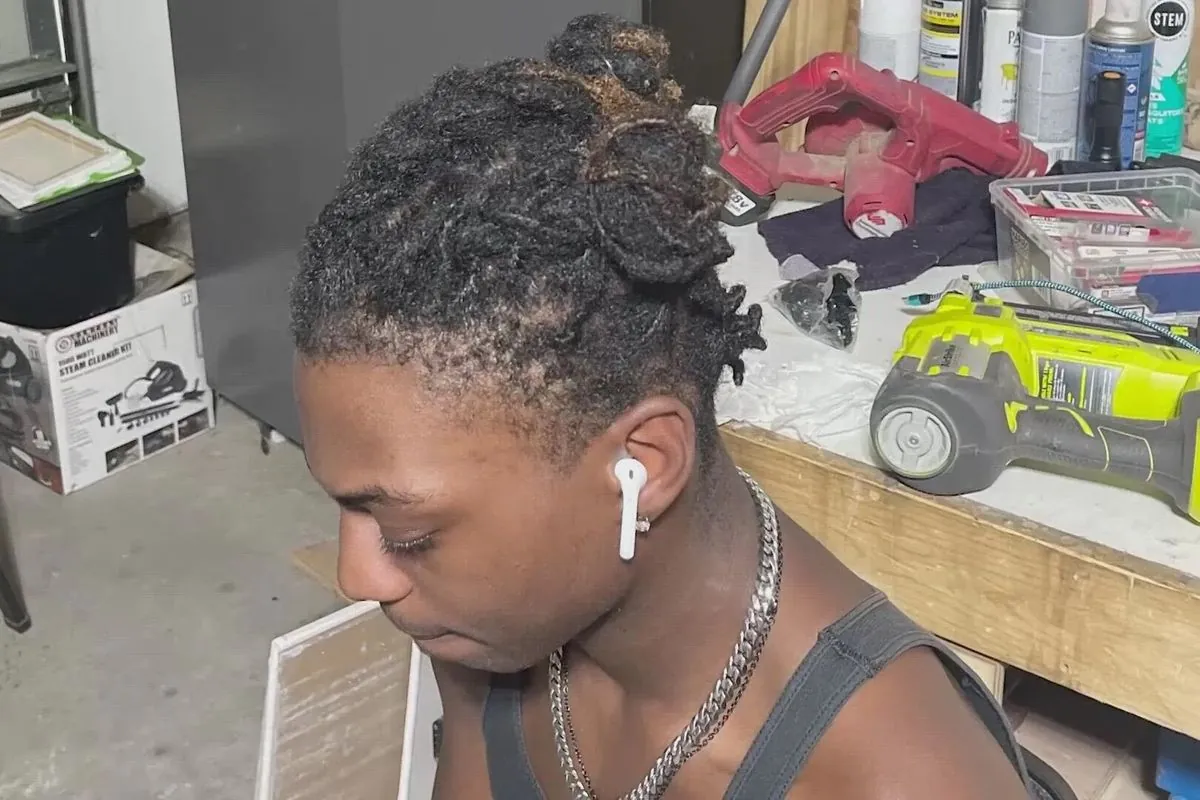In a recent development, a federal judge has denied a request from Darryl George, a Black high school student in Texas, to return to his school without facing punishment for his hairstyle. This decision marks another chapter in the ongoing debate surrounding hair discrimination and school dress codes.
George, now 19, had sought a temporary restraining order that would have allowed him to reenroll at Barbers Hill High School in Mont Belvieu, Texas. The student had left the school approximately 14 months ago, at the beginning of his senior year, due to continued disciplinary actions over his locs hairstyle.
The school district's dress code policy prohibits male students from having hair that, if let down, would fall below the shirt collar, eyebrows, or earlobes. George's locs, which he wears tied and twisted on top of his head, were deemed to violate this policy.
This case highlights the complex intersection of personal expression, cultural identity, and school regulations. Locs, which have a history dating back to ancient civilizations, hold significant cultural and religious importance for many communities. The debate over such hairstyles in schools reflects broader discussions about racial equity in education and the impact of dress codes on students' self-esteem and academic performance.
The CROWN Act, which stands for "Creating a Respectful and Open World for Natural Hair," came into effect in Texas in September 2023, making it the 13th state to pass such legislation. This law aims to prohibit race-based hair discrimination in schools and workplaces. However, in February 2024, a state judge ruled that George's punishment did not violate the CROWN Act.
The federal judge's decision to deny George's request was based on two factors: the timing of the request and the likelihood of the school district prevailing in the remaining gender discrimination claim of the lawsuit. This ruling coincided with George's 19th birthday, adding a poignant note to the ongoing legal battle.
It's worth noting that hair discrimination disproportionately affects Black individuals in educational and professional settings. The CROWN Act movement gained momentum following high-profile incidents of hair discrimination, with California being the first state to pass such legislation in 2019. Since then, the issue has garnered national attention, with some corporations and even military branches revising their grooming policies to be more inclusive of diverse hairstyles.
The case of Darryl George is not isolated. Federal courts have issued varying rulings on hair-based discrimination cases, and legal experts continue to debate the interpretation and application of the CROWN Act in various contexts. Some schools have taken proactive steps to revise their policies, recognizing the potential negative impact of strict dress codes on students' well-being and academic success.
As this legal battle continues, it serves as a reminder of the ongoing challenges in creating inclusive educational environments that respect cultural diversity while maintaining school policies. The outcome of this case may have far-reaching implications for how schools across the United States approach dress codes and hair policies in the future.
"We will continue to fight for Darryl's right to express his cultural identity through his hairstyle while pursuing his education."
This case underscores the need for ongoing dialogue and policy review to ensure that school regulations do not inadvertently perpetuate discrimination or hinder students' educational opportunities. As society continues to grapple with these complex issues, the hope remains that solutions can be found that respect both individual expression and institutional standards.
